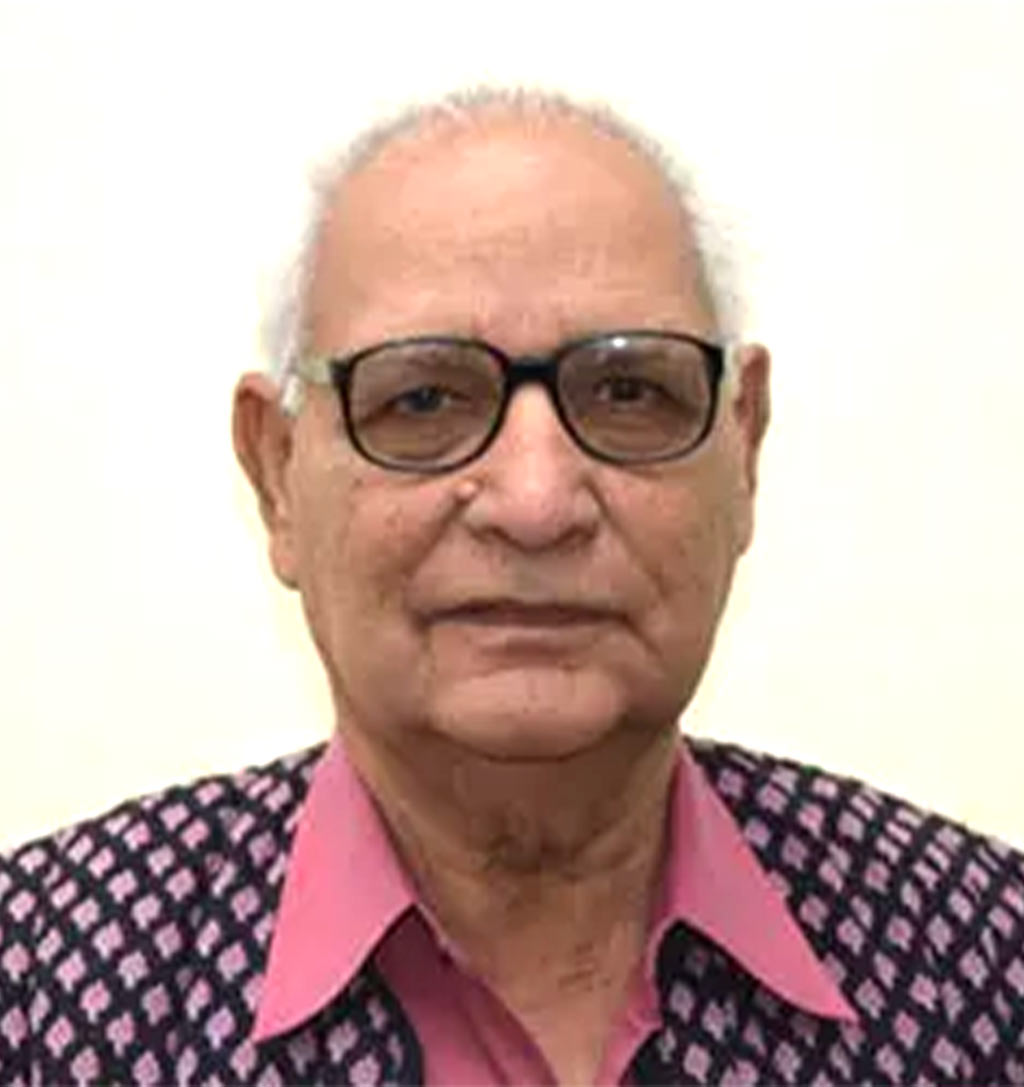
Emerging medical negligence jurisprudence that protects physicians-
The latest Supreme Court Judgment-
Bombay Hospital vs Asha Jaishwal 2021 CIVIL APPEAL NO. 1658 OF 2010
29. In Martin F. D'Souza v. Mohd. Ishfaq , (2009) this court observed that the doctor cannot be held liable for medical negligence by applying the doctrine of res ipsa loquitur for the reason that a patient has not favourably responded to a treatment given by a doctor or a surgery has failed. There is a tendency to blame the doctor when a patient dies or suffers some mishap. This is an intolerant conduct of the family members to not accept the death in such cases. The increased cases of manhandling of medical professionals who worked day and night without their comfort has been very well seen in this pandemic.
This Court (Bombay Hospital vs Asha Jaishwal) held as under:-
“40. Simply because a patient has not favourably responded to a treatment given by a doctor or a surgery has failed, the doctor cannot be held straightaway liable for medical negligence by applying the doctrine of res ipsa loquitur. No sensible professional would intentionally commit an act or omission which would result in harm or injury to the patient since the professional reputation of the professional would be at stake. A single failure may cost him dear in his lapse.
42. When a patient dies or suffers some mishap, there is a tendency to blame the doctor for this. Things have gone wrong and, therefore, somebody must be punished for it. However, it is well known that even the best professionals, what to say of the average professional, sometimes have failures. A lawyer cannot win every case in his professional career but surely he cannot be penalised for losing a case provided he appeared in it and made his submissions.”
30. In case of medical negligence, this Court in a celebrated judgment reported as Jacob Mathew v. State of Punjab and Anr. (2005) held that simple lack of care, an error of judgment or an accident, is not a proof of negligence on the part of a medical professional. The Court held as under:-
“48. We sum up our conclusions as under:
(1) Negligence is the breach of a duty caused by omission to do something which a reasonable man guided by those considerations which ordinarily regulate the conduct of human affairs would do, or doing something which a prudent and reasonable man would not do. The definition of negligence as given in Law of Torts, Ratanlal & Dhirajlal (edited by Justice G.P. Singh), referred to hereinabove, holds good.
Negligence becomes actionable on account of injury resulting from the act or omission amounting to negligence attributable to the person sued. (emphasis added vde supra) The essential components of negligence are three: “duty”, “breach” and “resulting damage”.
“(2) Negligence in the context of the medical profession necessarily calls for a treatment with a difference. To infer rashness or negligence on the part of a professional, in particular a doctor, additional considerations apply. A case of occupational negligence is different from one of professional negligence. A simple lack of care, an error of judgment or an accident, is not proof of negligence on the part of a medical professional. So long as a doctor follows a practice acceptable to the medical profession of that day, he cannot be held liable for negligence merely because a better alternative course or method of treatment was also available or simply because a more skilled doctor would not have chosen to follow or resort to that practice or procedure which the accused followed. When it comes to the failure of taking precautions, what has to be seen is whether those precautions were taken which the ordinary experience of men has found to be sufficient; a failure to use special or extraordinary precautions which might have prevented the particular happening cannot be the standard for judging the alleged negligence. So also, the standard of care, while assessing the practice as adopted, is judged in the light of knowledge available at the time of the incident, and not at the date of trial. Similarly, when the charge of negligence arises out of failure to use some particular equipment, the charge would fail if the equipment was not generally available at that particular time (that is, the time of the incident) at which it is suggested it should have been used.”
31. In another judgment reported as Arun Kumar Manglik v. Chirayu Health and Medicare Private Limited and Anr. ,(2019) this Court held that the standard of care as enunciated in Bolam case must evolve in consonance with its subsequent interpretation by English and Indian Courts. The threshold to prove unreasonableness is set with due regard to the risks associated with medical treatment and the conditions under which medical professionals’ function. (emphasis added) The Court held as under:-
“45. In the practice of medicine, there could be varying approaches to treatment. There can be a genuine difference of opinion. However, while adopting a course of treatment, the medical professional must ensure that it is not unreasonable. The threshold to prove unreasonableness is set with due regard to the risks associated with medical treatment and the conditions under which medical professionals function. This is to avoid a situation where doctors resort to “defensive medicine” to avoid claims of negligence, often to the detriment of the patient. Hence, in a specific case where unreasonableness in professional conduct has been proven with regard to the circumstances of that case, a professional cannot escape liability for medical evidence merely by relying on a body of professional opinion.”
32. In C.P. Sreekumar (Dr.), MS (Ortho) v. S. Ramanujam , (2009) this Court held that the Commission ought not to presume that the allegations in the complaint are inviolable truth even though they remained unsupported by any evidence. This Court held as under:-
“37. We find from a reading of the order of the Commission that it proceeded on the basis that whatever had been alleged in the complaint by the respondent was in fact the inviolable truth even though it remained unsupported by any evidence. As already observed in Jacob Mathew case [(2005) 6 SCC 1 : 2005 SCC (Cri) 1369] the onus to prove medical negligence lies largely on the claimant and that this onus can be discharged by leading cogent evidence. A mere averment in a complaint which is denied by the other side can, by no stretch of imagination, be said to be evidence by which the case of the complainant can be said to be proved. It is the obligation of the complainant to provide the facta probanda as well as the facta probantia.”
33. In another judgment reported as Kusum Sharma and Others v. Batra Hospital and Medical Research Centre and Others (2010), a complaint was filed attributing medical negligence to a doctor who performed the surgery but while performing surgery, the tumour was found to be malignant. The patient died later on after prolonged treatment in different hospitals. This Court held as under:-
“ 47. Medical science has conferred great benefits on mankind, but these benefits are attended by considerable risks. Every surgical operation is attended by risks. We cannot take the benefits without taking risks. Every advancement in technique is also attended by risks.
78. It is a matter of common knowledge that after happening of some unfortunate event, there is a marked tendency to look for a human factor to blame for an untoward event, a tendency which is closely linked with the desire to punish. Things have gone wrong and, therefore, somebody must be found to answer for it. A professional deserves total protection. The Penal Code, 1860 has taken care to ensure that people who act in good faith should not be punished. Sections 88, 92 and 370 of the Penal Code give adequate protection to the professionals and particularly medical professionals.”
34. Recently, this Court in a judgment reported as Dr. Harish Kumar Khurana v. Joginder Singh & Others (2021) held that hospital and the doctors are required to exercise sufficient care in treating the patient in all circumstances. However, in an unfortunate case, death may occur. It is necessary that sufficient material or medical evidence should be available before the adjudicating authority to arrive at the conclusion that death is due to medical negligence. Every death of a patient cannot on the face of it be considered to be medical negligence. The Court held as under:-
“11. …….. Ordinarily an accident means an unintended and unforeseen injurious occurrence, something that does not occur in the usual course of events or that could not be reasonably anticipated. The learned counsel has also referred to the decision in Martin F.D'Souza v. Mohd. Ishfaq, (2009) 3 SCC 1 wherein it is stated that simply because the patient has not favourably responded to a treatment given by doctor or a surgery has failed, the doctor cannot be held straight away liable for medical negligence by applying the doctrine of Res Ipsa Loquitor. It is further observed therein that sometimes despite best efforts the treatment of a doctor fails and the same does not mean that the doctor or the surgeon must be held guilty of medical negligence unless there is some strong evidence to suggest that the doctor is negligent.”
81. It is a matter of common knowledge that after happening of some unfortunate event, there is a marked tendency to look for a human factor to blame for an untoward event, a tendency which is closely linked with the desire to punish. Things have gone wrong and, therefore, somebody must be found to answer for it. A professional deserves total protection. The Indian Penal Code has taken care to ensure that people who act in good faith should not be punished. Sections 88, and 92 of the Indian Penal Code give adequate protection to the professional and particularly medical professionals. (emphasis added)
94. On scrutiny of the leading cases of medical negligence both in our country and other countries specially United Kingdom, some basic principles emerge in dealing with the cases of medical negligence. While deciding whether the medical professional is guilty of medical negligence following well known principles must be kept in view:- IX. It is our bounden duty and obligation of the civil society to ensure that the medical professionals are not unnecessary harassed or humiliated so that they can perform their professional duties without fear and apprehension. (Emphasis added)
In Kusum Sharma Ors vs Batra Hospital Med Research on 10 February 2010 the Hon’ble Supreme Court also observed as follows:-
The Indian Penal Code has taken care to ensure that people who act in good faith should not be punished. Sections 88 and 92 of the Indian Penal Code give adequate protection to the professional and particularly medical professionals (emphasis added) It is our bounden duty and obligation of the civil society to ensure that the medical professionals are not unnecessary harassed or humiliated so that they can perform their professional duties without fear and apprehension. The medical practitioners at times also have to be saved from such a class of complainants who use criminal process as a tool for pressurizing the medical professionals hospitals particularly private hospitals or clinics for extracting uncalled for compensation. Such malicious proceedings deserve to be discarded against the medical practitioners The medical professionals are entitled to get protection so long as they perform their duties with reasonable skill and competence and in the interest of the patients. The interest and welfare of the patients have to be paramount for the medical professionals . Both Sections 88 and 92 protect the doctor against any professional liability or allegations of medical negligence in situations when acts done for the benefit of the patient with or without his consent do not have the desired outcome. These sections provide that any act done in good faith is not negligence. Doctors should be aware of these sections as a defense against cases of negligence filed against them.
In Doctor Jacob Matthew Vs. State of Punjab the Honourable court opined against the judgment of Gupta& others case. They questioned the adjective gross and opined that all negligent acts causing death should be treated at par. Section 304-A of IPC was a sword hanging above the doctor, working both in government hospitals and in the private sectors. Since long, this has been made a malady and they were practicing defensive medicine so much that even proper treatment/surgical procedures were being held back with the fear of untoward results because of which doctors continued to be sued for no fault of theirs.
The term gross is not a reference to Sec 304-A of IPC and also not in connection to negligence. So in the case of Doctor Jacob Mathew, the Punjab High Court argued that doctors could not be considered on a different pedestal as far as section 304-A is concerned. The land mark judgment of the three judges bench of Supreme Court in Jacob Mathew v. State of Punjab, practically absolves the medical professionals of the liability of section 304-A. (emphasis added).This is amply clear that Section 304 ,304-A of IPC, can be made applicable to the doctors theoretically but they can feel secured in doing usual practices without any fear, apprehension of being victimized on trivial grounds. The honourable court had gone through the details of the problems faced by medical professionals and this land mark judgment will no longer distort the doctor-patient relationship and benefit the patients in the long run.
This will also free the doctors from undue anxiety in the conduct of their professions. The bottom line of this land mark judgment is, while expectations from the professionals must be realistic and the expected standards attainable, this implies recognition of the nature of ordinary human error and human limitations in the performance of complex tasks. The level of competence of the doctors should be maintained by continuous medical education. Incompetence due to lack of knowledge or due to quackery should be actively discouraged by the regulating bodies and associations. The decisions will not only provide relief to the doctors, who had been considered as soft targets by the law enforcing agencies and stop their harassment by unsatisfied patients but would also increase the quality of service.
To be Continued..........
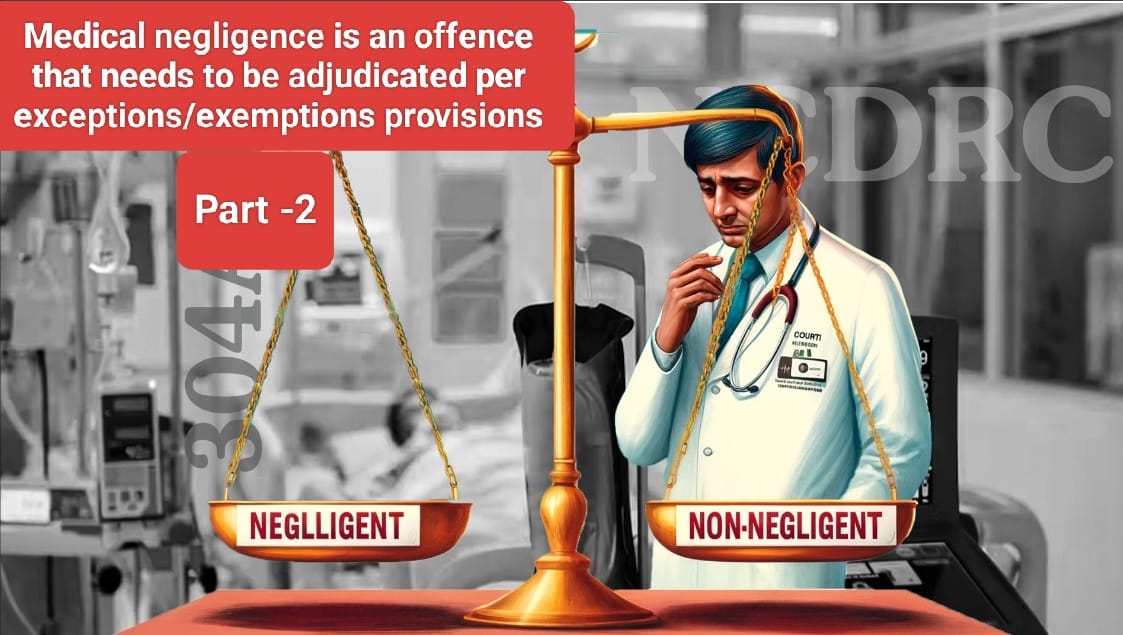


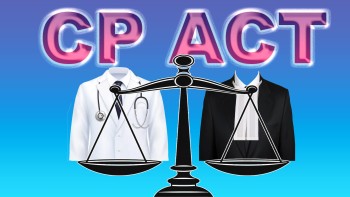
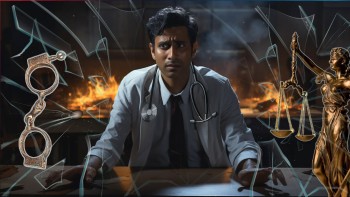




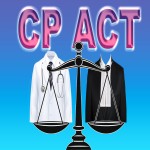

Recent comments
Latest Comments section by users